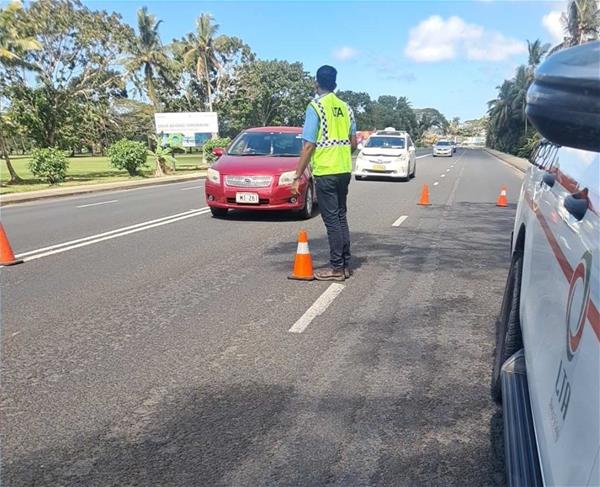SUVA, Fiji (12th September 2025) : The Land Transport Authority (LTA) is calling on all Fijians to take their lives seriously on our roads following the tragic loss of three lives in two separate incidents this week. The most recent tragedy occurred this morning in Nadolodolo, Tavua, where a Lautoka couple lost their lives after their vehicle allegedly collided with a sugar cane truck while travelling towards Rakiraki.
Earlier this week, a 52-year-old man also lost his life after allegedly being struck by a vehicle while suddenly crossing Grantham Road in Raiwaqa.
LTA Chief Executive Officer Irimaia Rokosawa said the heartbreaking incidents reinforced a grim reality—too many road users continue to place their lives, and the lives of others, at risk when they choose to ignore road safety measures and traffic regulations.
“Over the past weeks, common causes of accidents have been repeatedly identified, including speeding, loss of steering control, driver fatigue, reckless overtaking, dangerous driving behaviours, and irresponsible pedestrian crossings. Each of these factors highlights the ongoing challenge of road safety and the urgent need for all road users to take responsibility,” Mr Rokosawa said.
“The Authority continues to place emphasis on responsible road use, not just for drivers but also for passengers and pedestrians.
“Every individual who uses our roads has a role to play in ensuring safety. Enforcement and awareness will continue, but real change starts with each one of us making conscious, responsible decisions the moment we step onto the road—whether behind the wheel, as a passenger, or on foot.”
He said the Authority would continue to work in close partnership with the Fiji Police Force and municipal councils through regular enforcement operations and road compliance checks.
In addition, he said the Authority was strengthening its outreach and awareness campaigns in communities, schools, and workplaces to drive home the message that safety on our roads must always come first.
Mr Rokosawa said joint enforcement operations and awareness alone could not solve the problem as road safety required the active participation of every Fijian.
“For drivers, your life and the life of your passengers depend on your decisions. Remain alert at all times, obey speed limits, wear your seatbelts, exercise caution when overtaking, maintain proper steering control, and avoid driving while fatigued or distracted. Do not gamble with your life or the lives of others by taking unnecessary risks,” the CEO said.
“For passengers, do not remain silent when your driver is being reckless. Speak up if the driver is speeding, overtaking dangerously, or failing to observe traffic rules. Passengers have the power to influence safe driving practices and prevent potential tragedies.
“And for pedestrians, always use designated crossings, avoid jaywalking, and wear bright or reflective clothing when walking by the roadside at night. Be alert and cautious, as irresponsible road crossing continues to contribute to fatal accidents.”
These safety measures, Mr Rokosawa said, were not new as these were the same messages that LTA officers and stakeholders promoted every day in communities, schools, workplaces, and on our roads.
“Unless every road user chooses to act responsibly, we will continue to see lives cut short and families devastated by preventable accidents,” he said.
“Three lives have been lost this week alone. This cannot be the price we continue to pay for carelessness and disregard of the rules. Every preventable death robs Fiji of loved ones who had futures ahead of them. Safety begins with personal responsibility—choosing to follow road rules, prioritising lives over convenience, and respecting the rights of all road users.”
Fiji’s road fatalities as of 9th September 2025 stands at 46 compared to 40 for the same period last year, with 29 cases attributed to speeding, four cases of careless driving, four cases of improper overtaking and three cases of pedestrians at fault. Other fatalities included dangerous driving, drunkard pedestrian, improper turning and two cases of hit and run.
